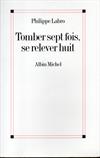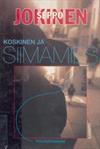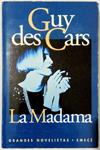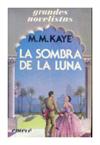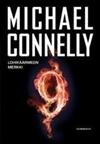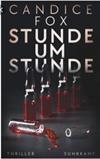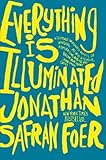
Everything is Illuminated
2 journalers for this copy...
This book is about a man who is searching for the saviour of his grandfather. An other storyline is the history of the shtetl Trachimbrod where his family originated from. The third storyline is the correspondence between the main character and his guide. Ingredients for a good story you might think, but it is not. THe author's style is not smooth enough. It stops and goes. There's only one good dialogue about meat. There are some funny butchered English lines like manufacturing zzz's. The pogrom is very dark and moving. This doesn't save the book. THe part on the World War II escape is unbelievable. The sex is weird and bad. Sometimes I got the feeling that Foer puts sex in the story because he doesn't know what to do. Just like a Dutch movie from the 70's.
Conclusion: The book is boring, badly written and actually a waste of time.
But somebody else might think differently.
Conclusion: The book is boring, badly written and actually a waste of time.
But somebody else might think differently.
Thank you so much, Twinfather, for sending this to me so promptly. Now I'd better apply myself to reading it before my book club on Sunday afternoon. Once again, thank you, and I shall send you 'The Left Hand of Darkness' as soon as I have finished reading it.
We had a good time discussing this at the book club. I hadn't quite finished, but the comments made by other people enhanced my experience of the final chapters. At the beginning of the book, I was irritated by the style of broken English which Alex's letters are written in. It reminded me of Borat, and just seemed to be poking fun at someone doing his best to speak a foreign language. In actual fact, the level of English was good, with ridiculous words added as if Alex had looked them up in a thesaurus without any idea of the context, and so it did not ring true. For example, somebody who did not know the word for good or excellent is unlikely to choose the word 'premium' instead. As the novel progresses, Alex's English thankfully improves, and also his initial tendency to try to impress Jonathan with tales of sexual prowess and popularity disappear as he becomes more honest with him. I didn't find the "humour" funny, and as somebody pointed out, it did not continue until the end of the book; it gradually became increasingly serious and humour could have been used for comic relief. In actual fact, I think that the humour became more subtle by the end, and I wondered if Safran Foer used absurd humour at the beginning to hook young male readers, but was unable to sustain it throughout. He gives the impression of being rather uptight, and in one of the letters, he makes Alex say that he is proud of being considered humorous, so I wondered if the author would have liked to be funny, but found it difficult.
All in all, the characters were grotesques rather than real people; the book reminded me strongly of Gunther Grass's 'The Tin Drum', and I wondered if this was deliberate, particularly as Jonathan describes how he used to like hiding under his grandmother's skirts, which is similar to the opening scene of 'The Tin Drum'.
As the story hopped backwards and forwards between the distant past, the time of WWII and the present, I found that it was difficult to follow what had happened, and who was who. Safran Foer increases this confusion at times by not making clear who is speaking, particularly when they are investigating the box, and many of the questions remain unanswered at the end. I'm not sure if I was missing something, but I still don't know how Lista and Safran escaped the pogrom.
In conclusion, I am glad I didn't abandon this after the first couple of chapters, because it improved later. There were some things I severely disliked (the puerile humour and the bad sex), but I did laugh at some of the more subtle humour (such as "the Eskimos have four hundred words for snow, and the Jews have four hundred for schmuck", and the way Alex and Jonathan revise their descriptions of events to make themselves more admirable, rather than short or cowardly). There are many poignant moments in the book, and of course I was moved by the tragedy of the wartime atrocities. The way in which this was told, with sparse punctuation, and all in a rush, was very well done, recreating the feeling of fear and helplessness and horror.
The description of Yankel when Brod came to live with him reminded me of 'Silas Marner', and some of the scenes were reminiscent of the more absurd plots of John Irving. I loved the idea of sex producing a glow that astronauts could see from space, and expected that this would be the explanation of the book's title. As I understand it, though, the phrase refers to the belief that everybody was implicated in the events of the pogrom and allowing the radically racist ideas of Hitler to spread instead of standing up to them and nipping them in the bud before they could do any harm. Safran Foer's book is obviously an examination of how Jews have dealt with the Holocaust. The generation who experienced it has tried to protect their children from the horrors they suffered, leaving them emotionally incapable and dangerously angry. They cannot follow the idea that "IF WE ARE TO STRIVE FOR A BETTER FUTURE, MUSTN'T WE BE FAMILIAR AND RECONCILED WITH OUR PAST?" He says that "The only thing more painful than being an active forgetter is to be an inert rememberer." However, it is time to stop shouting about the past, and time to let it become an ever-present background noise like that of the waterfall: "Every widow wakes one morning, perhaps after years of pure and unwavering grieving, to realize she slept a good night's sleep, and will be able to eat breakfast, and doesn't hear her husband's ghost all the time, but only some of the time. Her grief is replaced with a useful sadness." By the third generation, this useful sadness rather than anger is the way forward.
All in all, the characters were grotesques rather than real people; the book reminded me strongly of Gunther Grass's 'The Tin Drum', and I wondered if this was deliberate, particularly as Jonathan describes how he used to like hiding under his grandmother's skirts, which is similar to the opening scene of 'The Tin Drum'.
As the story hopped backwards and forwards between the distant past, the time of WWII and the present, I found that it was difficult to follow what had happened, and who was who. Safran Foer increases this confusion at times by not making clear who is speaking, particularly when they are investigating the box, and many of the questions remain unanswered at the end. I'm not sure if I was missing something, but I still don't know how Lista and Safran escaped the pogrom.
In conclusion, I am glad I didn't abandon this after the first couple of chapters, because it improved later. There were some things I severely disliked (the puerile humour and the bad sex), but I did laugh at some of the more subtle humour (such as "the Eskimos have four hundred words for snow, and the Jews have four hundred for schmuck", and the way Alex and Jonathan revise their descriptions of events to make themselves more admirable, rather than short or cowardly). There are many poignant moments in the book, and of course I was moved by the tragedy of the wartime atrocities. The way in which this was told, with sparse punctuation, and all in a rush, was very well done, recreating the feeling of fear and helplessness and horror.
The description of Yankel when Brod came to live with him reminded me of 'Silas Marner', and some of the scenes were reminiscent of the more absurd plots of John Irving. I loved the idea of sex producing a glow that astronauts could see from space, and expected that this would be the explanation of the book's title. As I understand it, though, the phrase refers to the belief that everybody was implicated in the events of the pogrom and allowing the radically racist ideas of Hitler to spread instead of standing up to them and nipping them in the bud before they could do any harm. Safran Foer's book is obviously an examination of how Jews have dealt with the Holocaust. The generation who experienced it has tried to protect their children from the horrors they suffered, leaving them emotionally incapable and dangerously angry. They cannot follow the idea that "IF WE ARE TO STRIVE FOR A BETTER FUTURE, MUSTN'T WE BE FAMILIAR AND RECONCILED WITH OUR PAST?" He says that "The only thing more painful than being an active forgetter is to be an inert rememberer." However, it is time to stop shouting about the past, and time to let it become an ever-present background noise like that of the waterfall: "Every widow wakes one morning, perhaps after years of pure and unwavering grieving, to realize she slept a good night's sleep, and will be able to eat breakfast, and doesn't hear her husband's ghost all the time, but only some of the time. Her grief is replaced with a useful sadness." By the third generation, this useful sadness rather than anger is the way forward.
Reserved for a slow-moving EU / UK bookring for people with 'Everything is Illuminated' on their wishlists. If and when it gets home, I will probably add it to the '1001-Library'.
Answered so far (the order will be set once the majority of the people I contacted have responded).- updated 23rd November:
Oedde (Jena, Thüringen, Germany)
Niksu (Helsinki, Finland)
Kiki66 (Gauting, Bayern, Germany)
Griete (Berne, Switzerland)
Charly83 (Nordhorn, Niedersachsen, Germany)
Eggs2805 (Le Vaud, Switzerland)
Answered so far (the order will be set once the majority of the people I contacted have responded).- updated 23rd November:
Oedde (Jena, Thüringen, Germany)
Niksu (Helsinki, Finland)
Kiki66 (Gauting, Bayern, Germany)
Griete (Berne, Switzerland)
Charly83 (Nordhorn, Niedersachsen, Germany)
Eggs2805 (Le Vaud, Switzerland)
